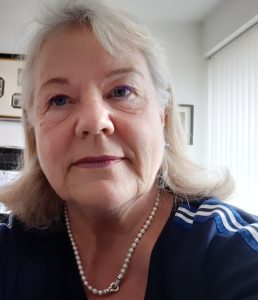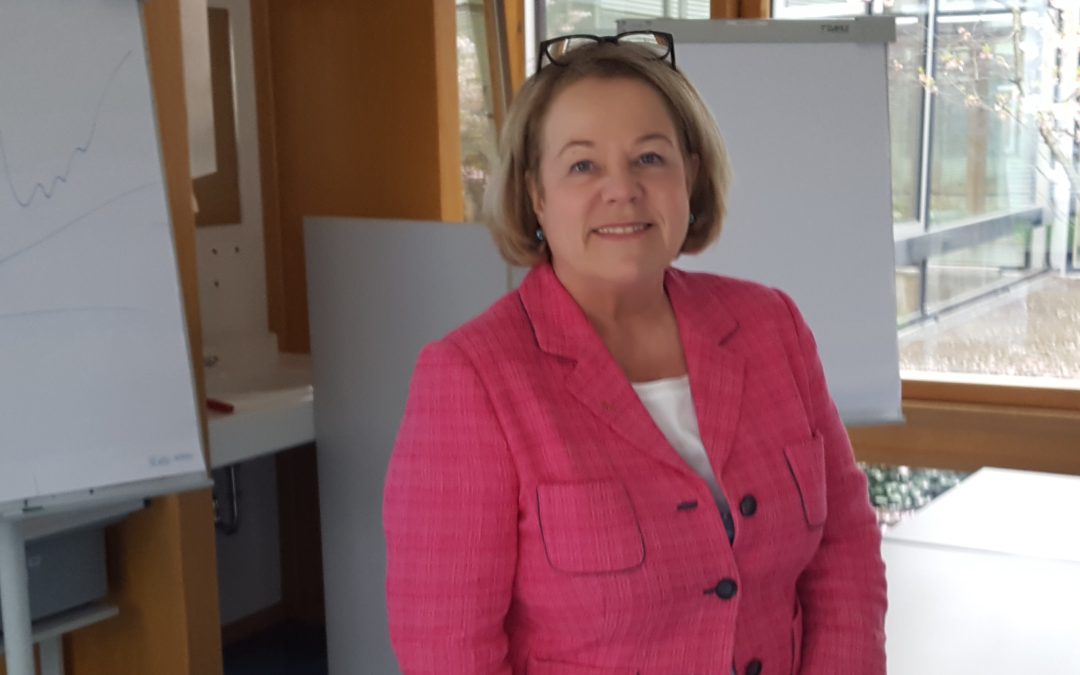Renate Kewenig worked as an investment consultant from 1996 to 2015. Now she is turning her attention to the much-cited but rarely realized topic of financial education. We talk to her about how she goes about this and what her experiences are.
Renate, you were an investment advisor for many years, and since 2015 you have been more intensively involved in the topic of financial education. What is the background?
I still have my license as a fee-based advisor, but I don't practice it; I see it as proof of competence. Today, the topic of financial education is close to my heart: people want to inform themselves, but at the moment there are too many "experts" rampaging around the net. In my eyes, some of them don't have any real expertise at all, but sell themselves well first and foremost. In addition, there is still a generation of women who don't just want to look on the Internet, but are looking for personal contact.
How, then, can a prospect who wants to expand her knowledge of the capital markets determine whether or not she is looking at someone with expertise?
If you're not an expert in a field yourself, that's difficult, of course. That's why I also talk in my financial training sessions about how to determine who you're dealing with, for example, through different accreditations.
And what exactly do you do as a financial educator?
I explain the basics and then focus primarily on strategy: How do I build up a fund portfolio? How do I protect it in the event of a crash? There is no product show with me. I also discuss the ETF hype we are currently experiencing and where ETFs are smart and where they are not. Such neutral financial information is quite unknown in Germany so far. I am neither controlled by consumer protection, nor by party politics or commissions. With me, everything comes out of the pure knowledge box.
If a listener does not want to implement what she has learned on her own at the end, I am happy to put her in touch with a colleague. In consulting, my graduates are then more likely to be able to discuss things at eye level.
You also work with consultants. Aren't you more of a competitor there?
Not at all, I'm no longer an intermediary. By providing people with financial education, I ultimately generate demand for good advice. I'm not a competitor, but rather we complement each other. That's why some consultants send their clients who first want to build up their financial knowledge to one of my seminars and also support them financially. Not all of the consultants themselves like to do seminars or do them well. After all, the seminar participants don't all become online customers and do everything themselves. But with me, they understand how complex the capital markets are and where pitfalls can lie. They then know what questions to ask and are more likely to be able to cope with the advisor. For the advisor, it's a relief because the general knowledge has already been built up, and only the individual issues need to be discussed. I prepare the ground, so to speak, without evaluating. At the end of the day, the participants can then evaluate the products together with their banker, with their advisor, to see whether they fit into their personal portfolio.
Between us: Can you make a living from your seminars?
I have found that people are very price sensitive when it comes to one-on-one coaching. It's easier when there are other payers. That's why individual online offers also play a role through Corona; fortunately, the initial shyness of the users has fallen away. I am also a lecturer at the Bonn-Rhein-Sieg University of Applied Sciences, where basic financial knowledge is a supplementary subject. The students, most of whom are in business administration, are great to work with and really enjoy the subject matter. I also once taught a 4th grade class at school, but for them the subject is of course even further away.
Employees can also attend my seminars through their company as an educational vacation. I encourage companies to do something for their employees when it comes to financial education, for example in company pension plans (bAV). As in asset management, you have to pool financial knowledge more to make it more efficient. Otherwise, it won't become a business case.
How did you get through the Corona crisis?
A lot of things that were in the pipeline, so to speak, were sunk by Corona for the time being. Now I have to make sure that I bring it back to the front. Of course, it's a lot of work, but it's worth it. Many educational institutions are looking for speakers on financial topics. The whole thing is then often combined with communication. There are some really great ideas in the field of education, some of which are also supported, for example through educational leave. The cake is big enough, and the task is ultimately to convey the importance of financial knowledge.
Do you also do financial entertainment?
First and foremost, I don't want to entertain; after all, this is a serious matter. The knowledge I want to impart should be well-founded. But of course my seminars can be fun!
Thank you Renate, for the insightful conversation!




